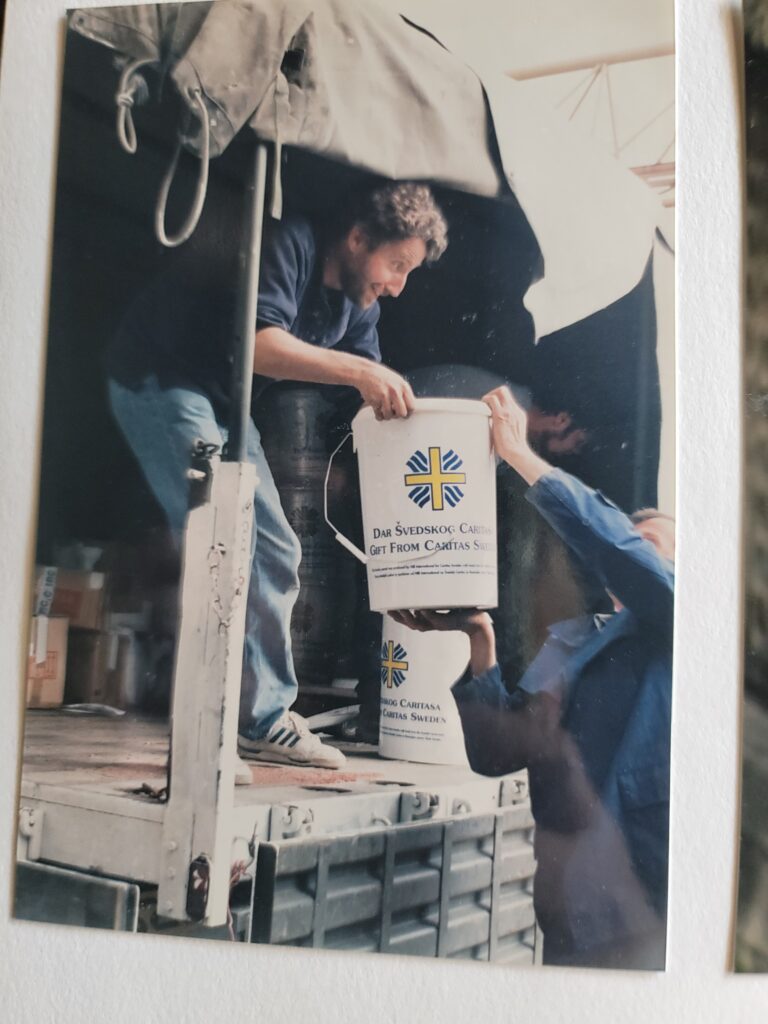
Back in 1994, there was a conflict in Central Europe that was reminiscent of World War II. Not to go into too much detail, hundreds of thousands of Muslims were being systematically slaughtered in the name of ethnic cleansing by Bosnian Serb militias, exactly like the 6 million Jews during the Holocaust. No Western government wanted to get involved so hundreds of volunteers from across Europe began collecting donations, assembling boxes of aid, and driving trucks on aid convoys from all over Europe into the war zone.
Even then, I felt keenly that there was a conflict I could affect. I volunteered to drive a canvas-topped old Army truck as part of a convoy across Europe from London where I was living. It took three days and nights before we arrived in Split, Croatia where our base camp was located. The next day we drove to war, traveling on dusty, back roads in a long parade of our trucks accompanied by UN support vehicles. Eleven hours in and eleven hours back. Two stops to drop off aid and a night spent on the hard floor of a gymnasium on a British Army base. Then we returned home, driving three days back to London. Did I mediate, or make peace anywhere for anyone? No, but the experience instilled in me that I could in some small way affect change for the good. My moral conscience, that piece of me that drove me to volunteer, is the same conscience that drives me now to mediate peace between people and companies.
The war in Bosnia was a conflict waged by small people who became tyrants, thugs, and murderers. I’ve tried, as a mediator, to bring aid to warring parties who have run out of choices or fresh perspectives; to bring aid to people caught up in spirals of frustration, resentment, and bitterness. In a time when someone can pick up a gun in our own country and kill indiscriminately, I believe mediators provide a valuable commodity.
If you like this Newsletter, please leave a comment or click on “Like”, and share it on your network
